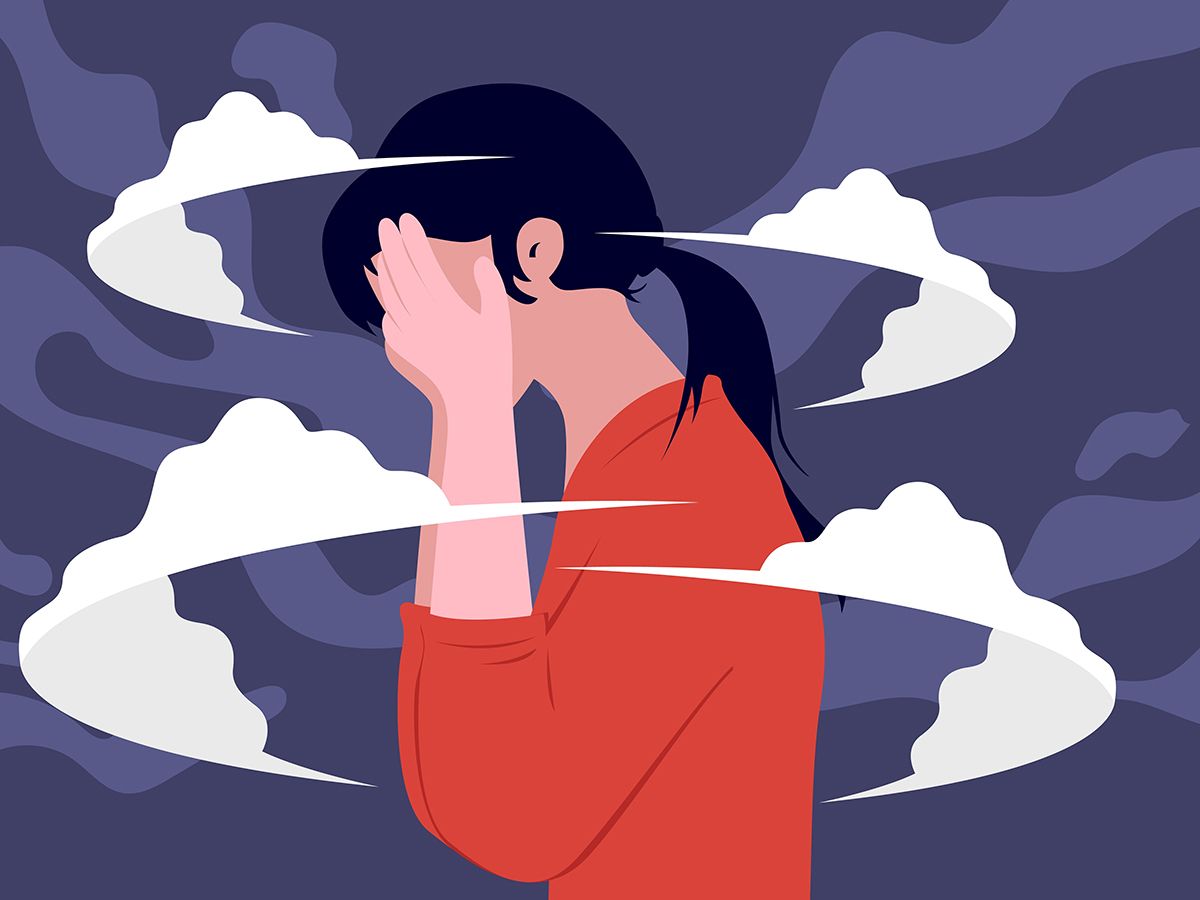
Thirty-one-year-old Srijita Das (name changed on request) doesn’t have patience for friends who frequently vanish on others or ‘ghost’ them. “It’s tiring. You can’t keep waiting for someone to keep returning; it’s exhausting,” says the Indian expat, based in Sharjah. She recalls a co-worker, who became a close friend. “Or at least, I thought we were close friends. I left my previous office in Abu Dhabi, and we kept in touch regularly. We had the same interests like K-drama, K-Pop and Marvel, DC, so it was just so comforting to share that space with someone. But, now that we weren’t seeing each other regularly, gaps began to appear in our communications,” says Das.
The friend would return after two weeks of silence. At first, Das was accommodating. “She always apologised profusely. She didn’t explain clearly why, she just said that she was going through something, but could never tell me what. But the pattern of coming and going was too exhausting. I would always be happy to talk to her, yet, realise that she wouldn’t be there, the next minute,” says Das.
It wore her down.
Ghosting a friend, for whatever reason, results in much anxiety. It’s more frustrating as the other person doesn’t even know why they’re being ghosted. You’re just staring into a void of ‘seen’ messages. “It happened to all of us: we meet someone, we hang out, we have fun, and they become an important part of our life and then, suddenly and without warning, they disappear. No answers to our texts, no phone calls returned. It's all black,” says Letizia Cardeli, clinical psychologist, at the German Neuroscience Center. “They call it 'ghosting', as it is no longer limited to romantic relationships anymore,” she elaborates.
“If the friendship has been built over the years, ghosting might be less likely to happen,” says Cardeli. “Other friends and possibly families are involved, and because we might have plans together or shared interests,” she adds. In such scenarios, friendship is more likely, if any, to slowly fade over time.
Close friends don’t ghost you, acquaintances do, feels 66-year-old Mita Srinivasan, the founder of the Dubai-based communication consultancy Market Buzz International. “You should always be honest with friends. If you have a problem, you need to tell them. Otherwise, it’s not a friendship. If you have to ghost a friend, that’s not being a friend. It’s such a crude and horrible thing.”
However, Srinivasan recalls how she would occasionally take steps back from a friend who would often make hurtful remarks. So, ghosting might happen as a self defence mechanism. “There were times when she hurt me. It was better if I didn’t talk to them for a while. Otherwise, I didn’t want to say something that would break the friendship. She was also going through something. I wouldn’t go out of my way to connect with them,” she adds.
What are the effects of ghosting?
Ghosting by friends causes denial and grief of losing that connection.
Being ghosted activates the same parts of the brain as “emotional abuse”, says Ayat Mekki, a life coach and wellness expert, based in Dubai. “It can also trigger abandonment issues, fear of relationships, isolation and over time can become a barrier to experiencing deep and meaningful connections.”
As per Womenlaw.org, an American website that is aimed at helping victims of domestic violence, “Emotional and psychological abuse can have severe short- and long-term effects. This type of abuse can affect both your physical and your mental health. You may experience feelings of confusion, anxiety, shame, guilt, frequent crying, over-compliance, powerlessness, and more.”

Hence, constant ghosting creates emotional trauma. If you get used to being ghosted repeatedly, especially when it’s by the same person, you may become emotionally addicted and crave the high of having them back in your life, adds Mekki. She warns against such a cycle and says, “Not only does it create a false sense of safety in a relationship, it makes you prone to being emotionally manipulated and devalued. Your self-esteem will suffer from being in such a relationship pattern.”
For Das, it was nothing but a wearisome cycle of happiness, anticipation and then disappointment. She acknowledges that her friend was going through something deeply troubling at the time. “I didn’t know what it was. She just kept saying ‘there’s a lot happening’,” she says. “Maybe, she was too tired to explain. I was also going through a lot, with work and frequent illness. I just got tired of being happy when she returned, and then hurt when she left without warning. I no longer had the energy to keep holding that comfort space for someone to walk in and walk out.”
In the end, Das emphasises that she didn’t cut her off, but just set stronger boundaries. “When I say that I was done with her, I mean that I just lowered my expectations. I didn’t respond to her for a while, till I had healed and recovered myself. I kept a distance. So, now when she doesn’t reply, I don’t get hurt. I am not waiting for her anymore.”
Why do friends ghost us?
In all probability, you know your friend doesn’t mean harm. Yet, it causes worry.
There are multiple reasons for why people choose to ghost their friends. Sometimes, they’re not able to explain what they’re going through. For them, the vanishing act is a lot simpler than talking about what’s the actual problem. “People ghost for many reasons, many will do it because it can be easier to ghost than to communicate the truth,” says Mekki.

Constant ghosting creates emotional trauma. If you get used to being ghosted repeatedly, especially when it’s by the same person, you may become emotionally addicted and crave the high of having them back in your life.
It is also a coping mechanism to deal with an uncomfortable situation, especially when a person lacks proper coping skills, adds Hiba Mehanna, a Dubai-based psychotherapist.
Avoiding the truth
Forty-year-old Ipshita Sharma, a Dubai-based freelancing Indian journalist recalls a friend who couldn’t handle her depression. “Seven years ago, I had just moved to Dubai. I didn’t have any friends, so I reached out to people in this online forum. I made friends with this single mother, and I really appreciated her. We got close very fast,” she says.
Sharma recalls that there were several times that she broke down in front of her friend. “I was having a tough time with work. I told her that I was having phases of depression. I said that I wouldn’t be there for her as much as I would like. She said she understood. She said that she would need to take care of her needs too. I understood and asked to be told if I ever upset her,” added Sharma.
Both of them promised to keep their communication lines open regardless, but Sharma found herself abandoned, despite the promises of honesty. “That was it. I messaged her many times. But there was no reply,” elaborates Sharma.
Sharma gathered bits and pieces from what other people told her and a rather obscure public message that her friend shared on Facebook. “She didn’t want anyone ‘flighty’ around her child. She thought that I would be flighty and not there for her, and I haven’t heard from her since,” she said.
Sharma called the whole episode rather traumatic and painful, but has made peace with it now. “It really hurt so much. I didn’t understand why it was so easy for her. I couldn’t understand why it was so easy for her to remove me from her life. I was really invested in that friendship,” adds Sharma.
Moreover, the episode made her feel as if depression had deeply impacted her relationships. However, Sharma tries to be fair and says, “I get it, I guess. I suppose it is not easy investing in a relationship where you don't know what you're getting in return,” she adds.
Too overwhelmed to explain
Sometimes, the words just don’t come.
Sometimes, if a person just vanishes without a reason, they could also be overwhelmed with life, says Ritasha Varsani, psychologist at LifeWorks Counseling and Mental Health Clinic in Dubai. “It could be because of social media, or even your life, or your lifestyle. It could be anything. There are a lot of underlining issues, related to low self-worth, family issues or their own relationship struggles. So, they take a pause,” explains Varsani.

If they are going through some genuine trouble, it is okay, if they don’t respond often, adds Varsani. “We must allow ourselves to accept that kind of behaviour, too,” she adds.
Twenty-year-old Sadhika Mendiratta, (name changed on request) a consultant at a sustainability agency in Dubai, speaks from the opposite side of the spectrum. “I have been guilty of ‘ghosting’ my friends. But to be honest, I never meant to do so,” she explains.
“During the second-wave of COVID-19 in India, I almost died. It was a terrible week of hospitalisation, watching my parents and best friends running around for oxygen cylinders. My recovery was slow and painful. Many friends sent me loving messages, but I couldn’t respond to most of them. The fear of dying became a recurring nightmare, and it took hold of me for a long time. After recovery, my parents fell ill. That anxiety was eating into me, and no words could do justice. I didn’t know how to talk to people,” she said.
Many of her friends were frustrated and angry because she was putting Instagram posts, but not responding to them. “They were upset. They thought that I was avoiding them. One friend got so angry with me that she blocked me. I can’t blame her. But the truth is, that I just didn’t want to talk to people, who were not in my immediate circle,” adds Mendiratta. “Whenever things get too deeply intense and emotional for me, I need time off. I need to sort things out in my head, before I can talk to people. It’s nothing personal, I just need time for myself,” she says.
Should we let go of friends who ghost?
The answer isn’t univocal. It depends on the people involved, their mental bandwidth, and the kind of friendship they share.
Forgiving and forgetting has a lot to do with the reasons why the friendship ended, the way it was handled by both parties and the extent of time that passes before one - or both - decide to get in touch again, explains Cardelli. “If things have changed, and if there were no major and deliberate hurtful actions, then a second chance can probably be cautiously considered,” she says.
Give it time
If your friend is going through something and they have vanished, do try reaching out to common friends or their family cautiously, advises Varsani. Ask whether everything is alright. “Don’t personalise it, and think that you have done something wrong. Probe a bit, and give it some time,” she adds.

Remember that being ghosted doesn’t necessarily mean you did anything wrong or that there is something wrong with you, says Mekki. This is important to remember because unfortunately, those are the conclusions the brain draws when you’re still in the initial shock of being ghosted, she adds.
Root out the toxic ghosting friends
On the other hand, Mekki warns against the reiteration of unhealthy dynamics. If you think the friend doesn’t deserve the time and effort, then keep them out of your life. If you think they’re just being casual and taking you for granted, then its’s best to cut them off. “Let go of the situation and the friend who ghosted you. Letting go helps you move on. Choosing to keep the door ajar for those people to come back into your life will keep you in an unhealthy relationship dynamic which will cause you more emotional distress over time,” she explains.
This comes in the form of unfollowing them digitally, muting their social media updates, and keeping a distance from them
Be transparent, open and promise a comfort space
Both of you need to feel safe, too. Have honest conversations with your friend, and be transparent, before you take a drastic decision.
“Healthy relationships are meant to be reciprocal, safe, kind, and have clear communication and boundaries,” adds Mekki. Transparency and openness is necessary for a healthy friendship. Ask them straight what the problem is. If the frequent ghosting is taking a toll on you, let them know. "It is encouraged to set clear boundaries for yourself, such as holding back from asking them why they have ghosted you, and begin prioritizing your mental health and wellbeing by removing yourself from the space you share with them, emotionally and physically," says Mehanna.
Set your boundaries clearly, letting them know that you are affected by their disappearances. However, if they’re having a difficult time, demonstrate compassion as well. They need to know that you are also a safe person to have a conversation with.
(Note: This article was first published on May 9, 2023)







